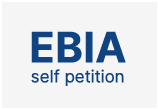This website uses cookies so that we can provide you with the best user experience possible. Cookie information is stored in your browser and performs functions such as recognising you when you return to our website and helping our team to understand which sections of the website you find most interesting and useful.
EB2 National Interest Wavier (NIW)
EB2-NIW refers to the national interest wavier (NIW) classification of the second preference employment (EB2) based immigration category. Among the five employment based categories, EB2 is reserved for member of the professions holding an advanced degree or its equivalent, or a foreign national who has exceptional ability. Sub-categories or classifications in the EB2 preference are 1) Advanced degree professional, 2) Professional with Exceptional Ability and 3) Professional whose qualifies under National Interest Waiver. The first two classifications require employer sponsorship while the third classification does not require sponsorship. Because the EB2-NIW does not require sponsorship, it is very popular among postdocs or PhD holders and many PhDs apply in this category to take advantage of the self-petition process. Similar to EB1A, the applicant is not required to be in the USA at the time of application.
In general there is no statute that defines national interest wavier. However, USCIS requires the applicant satisfy a) the exceptional ability criteria (not to be confused with EB1A extraordinary ability) in addition to showing that b) their work is in the US national interest. Exceptional ability “means a degree of expertise significantly above that ordinarily encountered in the sciences, arts, or business”.
Once familiar with the right USCIS rules and I-140 application approach, the EB2-NIW self-petition is quiet manageable.
USCIS Criteria for National Interest Wavier
If you plan to apply in NIW you need to show that
- you satisfy the requirements of ONE of the two EB2 sub-categories
- advanced degree professional (BS in the US or Master, PhD or BS+5 years from foreign country) — while this category appears easier, most applicants choose to use the second sub-category, because USCIS explicitly states that “national interest waivers are usually granted to those who have exceptional ability”. Further USCIS does not explicitly mention that a permanent job offer is not required for this combination (advanced degree plus NIW). Therefore, we normally suggest applicants to use the requirements of second sub-category. We have seen some approvals for cases without permanent job offer, when the national interest case is very strong.
- exceptional ability (see below) — most PhD approvals are in this sub category and we only encourage to apply in this category. USCIS explicitly states that permanent job offer is NOT required for exceptional ability plus national interest combination (see PM-602-0005.1).
- your work is in an area of substantial intrinsic merit and important to the national interests of the United States.
- the benefits from your employment will be national in scope.
- the significant benefit derived from your participation in the national interest field of endeavor considerably outweighs the inherent national interest in protecting U.S. workers through the labor certification process.
In short, EB2-NIW requirements are either advanced degree professional+national interest or exceptional ability+national interest. In both cases employer sponsorship is not required. However, in the former case USCIS does not explicitly state that permanent job offer is not required. While it is technically possible to obtain green card in the former approach, most applicants choose the exceptional ability with national interest. Our DIY- NIW packets are helpful for both of the above sub-categories. Also PhDs and Post docs are very likely to satisfy the exceptional ability criteria stated below. You can read more about the green card application procedure, how to write NIW reference letters, typical approved NIW cases and how to judge your NIW chances.
Exceptional Ability Criteria
In order to show exceptional ability you must meet three of the following regulatory seven criteria.
- Official academic record showing that you have a degree, diploma, certificate, or similar award from a college, university, school, or other institution of learning relating to your area of exceptional ability
- Letters documenting at least 10 years of full-time experience in your occupation
- A license to practice your profession or certification for your profession or occupation
- Evidence that you have commanded a salary or other remuneration for services that demonstrates your exceptional ability
- Membership in a professional association(s)
- Recognition for your achievements and significant contributions to your industry or field by your peers, government entities, professional or business organizations
- Other comparable evidence of eligibility is also acceptable.
Evidence for advanced degree professional
Documentation, such as an official academic record showing that you have a U.S. advanced degree or a foreign equivalent degree, or an official academic record showing that you have a U.S. baccalaureate degree or a foreign equivalent degree and letters from current or former employers showing that you have at least 5 years of progressive post-baccalaureate work experience in the specialty.
What is substantial intrinsic merit?
Any work that is significantly useful to someone somewhere is considered substantial intrinsic merit. If you are researcher, some ways that show this are a) citations of your publications by others b) large number of downloads of your research article c) commercialization of patents or d) testimonial letters by independent reviewers that mention use of your techniques or work. Nearly all research work may be justified as substantial intrinsic merit. If your work is in the national interest or aligned to a national goal, it can be justified to have substantial intrinsic merit.
What constitutes national interest?
USCIS states that there are no established rules that define what is considered US national interest and applications are generally judged on an individual basis. However, there are some general conditions that are regarded to be in the US national interest. A few examples include
- your work is expected to benefit the US economy
- your work will improve working conditions in the US
- your work helps national security
- your work directly related to defense research
- your work improves national health conditions
- your work is fundamental research with wide ranging implications to the US
There can be numerous other situations that can qualify as US national interest.
What does not constitute national interest?
USCIS clearly states that the proposed work should be national in scope. This condition excludes several common situations that applicants mistakenly consider as national interest. For example consider the following situations 1) a environmental company in Ohio is interested in hiring you and using your exceptional skills for analysis of water in Ohio river basin 2) a university in Nevada is interested in hiring you for your exceptional skills to help develop a unique curriculum for Asian students in Nevada. Can these be considered NIW cases? If stated as above, both situations may not be considered for NIW because the stated benefit of the work is not national in scope. However, the above situations can be considered national in scope if evidence is presented that shows 1) analysis developed for the Ohio river basin would be applicable to other US rivers and helpful for US environmental protection, 2) the curriculum developed for Asian students in Nevada may be used across the US universities which could improve US relations with Asian countries.
Permanent job offer
Permanent job offer is not required for EB2-NIW based on exceptional ability. However it is required in the case of an advanced degree professional. A permanent job is one that does not have any limited term mentioned in the job offer letter. Contract positions, postdoctoral positions, some research associate positions generally have a limited term mentioned in the job offer letters and are not considered permanent jobs.
Other resources
You can read more about EB2-NIW USCIS criteria from the following resources.
- Employment-Based Immigration: Second Preference EB-2
- Understanding EB2-NIW: USCIS Requirements.
- PM-602-005.1: December 2010 Policy memorandum providing guiding for aliens of EB1A and EB2-NIW based on exceptional ability.
Our DIY-NIW packets can help you in preparing an effective petition. They contain a Howto guide and an example petition letter.
Disclaimer: The contents in this web site are only for your information and are not intended to be legal advice. While many of our applicants successfully obtain their I-140 approvals, the information here should not be considered as a guarantee of your green card application outcome.




